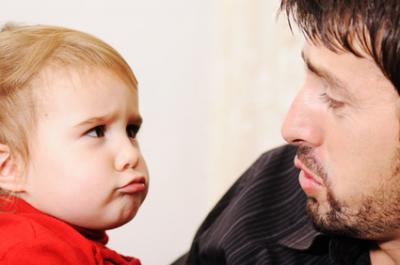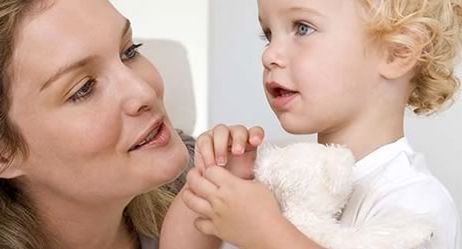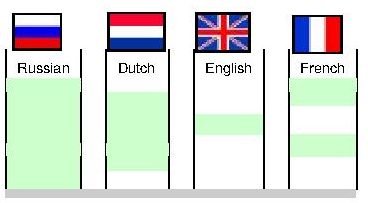
Right-klick on one of the logos
and "save as...."

Agencja Usług Lingwistycznych LOGMAR is a family-owned private language school which has been teaching foreign languages since 1991. At present we have about 450 students and we provide instruction in English, German, Spanish, Italian and Russian for adults , teenagers and children. Our particular focus is on adult and intergenerational education. We are an ESOL Cambridge preparation centre offering language instruction at all CEFR levels. We organise in-service teacher training courses, Business English corporate courses and open courses for the town citizens.
Owners of the school work as volunteers with local NGOs for the benefit of European integration. For the last 10 years we have been coordinating cooperation with European twin towns of our town acting both as hosting and sending organization. We believe that what ordinary citizens can do for European integration on the level of local and regional organizations is just as important as what politicians do on the level of European Parliament. Personal bonds, friendships, knowledge people develop about one another help to fight xenophobia and racism. In 2010 on behalf of an NGO association we volunteer for, we have been coordinating Grundtvig Workshops entitled "Proud of Our Heritage". One of our aims is to develop active citizenship and to motivate adults to volunteer for the sake of their local community.
Since participation in the LLP projects was not possible for non-legal bodies (National Agency formal criteria), in 2011 owners of the school founded a limited liability company ProEdu, Edukacja i Kultura, Sp. z o.o. which allowed us to fully participate in actions of the Grundtvig programme. Since then we have implemented a number of actions also cooperating with our town NGOs: the Third Age University and the Association for International Cooperation RYBNIK-EUROPA. Currently, withing ProEdu company we are organizing a Grundtvig Workshop entitled "Variety is the Spice of Life. Holistic Approach to Seniors' Well-being", a Senior Volunteering Project and a Grundtvig Partnership project "Music Maestro". So, although LOGMAR as an organisation has no LLP history , ( see C.2.5. ) as owners of the school and the school staff have considerable experience in various types of Grundtvig actions within ProEdu, Edukacja i Kultura, Sp. z o.o. Nevertheless, we have decided to participate in this project as a language school which has more language teaching experience and larger spectrum of learners.
 Careful with young children!
Careful with young children!
Digital media are detrimental for their speech development
The baby needs first copying the physical speech activities of a real person, before being able to then recognize digital sounds. When listening to a person in front of us, our mirror neurons are imitating automatically within our own body all the activities that are happening in the lips, the tongue, the larynx etc. that are active in front of us. Already the mere listening to the parent’s voice therefore trains the baby’s physical speaking dexterity. As electronic devices have no lips, tongue nor larynx to copy, the listening to digital media is not only useless to a young child, but keeps the child’s attention in a drowsing state without being able to identify any of the sounds. During this time the child misses to pay attention to the living opportunities around, which results in serous deficits of their speech develop-ment (Prof.Spitzer):
When listening to a person in front of us, our mirror neurons are imitating automatically within our own body all the activities that are happening in the lips, the tongue, the larynx etc. that are active in front of us. Already the mere listening to the parent’s voice therefore trains the baby’s physical speaking dexterity. As electronic devices have no lips, tongue nor larynx to copy, the listening to digital media is not only useless to a young child, but keeps the child’s attention in a drowsing state without being able to identify any of the sounds. During this time the child misses to pay attention to the living opportunities around, which results in serous deficits of their speech develop-ment (Prof.Spitzer):
“An important American pediatric study with more than a thousand babies investigated in 2007 on the effect the “Baby-Einstein” DVD had on the babies’ speech development. While the Disney Concern was successfully selling it from 2003, expecting babies to become a speech genius, the effect of listening to the DVD was actually double as negative as the effect of parents reading to their children had been positive compared to the control group ! ” Study: Media Viewing and Language Development under age 2.
“In California 9 to 11 month old babies were able to learn Chinese sounds from a Chinese woman. The group which listened to the same woman on video did not learn anything” 2 Studies: Foreign language experience in infancy. However, listening to sounds while simultaneously imitating the activity of a speaking mouth in front of you, is a classical conditioning. This means, after a while the mere hearing of a specific sound will automatically trigger the body activities which used to accompany this sound. Then the physical presence of another body to copy is not needed anymore. This happens at the age of 3 up to 5.
However, listening to sounds while simultaneously imitating the activity of a speaking mouth in front of you, is a classical conditioning. This means, after a while the mere hearing of a specific sound will automatically trigger the body activities which used to accompany this sound. Then the physical presence of another body to copy is not needed anymore. This happens at the age of 3 up to 5.
Once the langue which is spoken in the child’s environment has well settled this way in the child’s body, the brain starts closing down the connections of other sounds that have not been used (called “critical phase”: use it or lose it).
 This is why learning a language perfectly and without accent is easy at a young age and why it becomes more difficult later.
This is why learning a language perfectly and without accent is easy at a young age and why it becomes more difficult later.
This “use it or lose it” is also the reason why native speakers of languages that cover a wide range of sounds and pitches (such as for example Russian and Dutch) are more at ease with learning foreign languages, whereas for example for native French or English speakers, learning a foreign language is much harder. In particular these two languages cover only a quite narrow spectrum: French divided in some high and some low pitches, English ranges in the middle. When listening to English people who are trying to speak French (or the other way round), you may notice that there is a lack of ability for seizing the sounds of the other language correctly.
SolidArt was created in 2010, in Geneva, Switzerland, when residents with foreign nationalities reach almost 50% of the population, among them many migrants and National Organizations workers.
SolidArt improves the insertion and the well-being of people through various and additional approaches, such as for example :
- art (creative writing, dance, vocal),
- lifelong learning (empowerment, tolerance, self-esteem, conflict management, communication skills),
- ecological concerns (core education, physical education, environmental consciousness),
- languages learning,
A large community of outside trainers supports our activities to enlarge human creativity and knowledge and helps us to broaden the faculties of our offers and apply them more specified.
Also promoting workshops on a wide range of topics (from artistic subjects - as poetry and painting - to sociological sustainability issues). SolidArt targets all the citizens and deals equally with different groups of people.
Our action allows all groups - including those facing socio-economic disadvantages, those with few or no formal qualifications, those unemployed, migrant workers, and minority ethnic groups, those with special needs- to meet up around cross-cultural and cross-societal subjects.
Most of our trainees and trainers, participants and producers, assistants and volunteers, have been attracted by the association for one special topic which matches their need and, eventually, attend other events joining people from different faculties.
With a permanent team gathering artists, trainers, language teachers, social workers, physiotherapists and experts in psychology, adult education and e-learning, SolidArt will bring to the project a support by producing:
- creative writing suggesting language learning text samples for different target groups.
- evaluation of the suggested text samples
- translation of text samples from and into French
- decoding of the translations according to Vera F. Birkenbihl Method.
- recording of text samples
- recording of decoding
- synchronisation of the audio material
- design and layout of the written material
- implementation of a learning solution
- design and experimentation of the app: media, content and user interface
- dissemination of result
- invitation of potential collaborators for future production of neurodidactic language learning tools or become a future collaborator one self.

